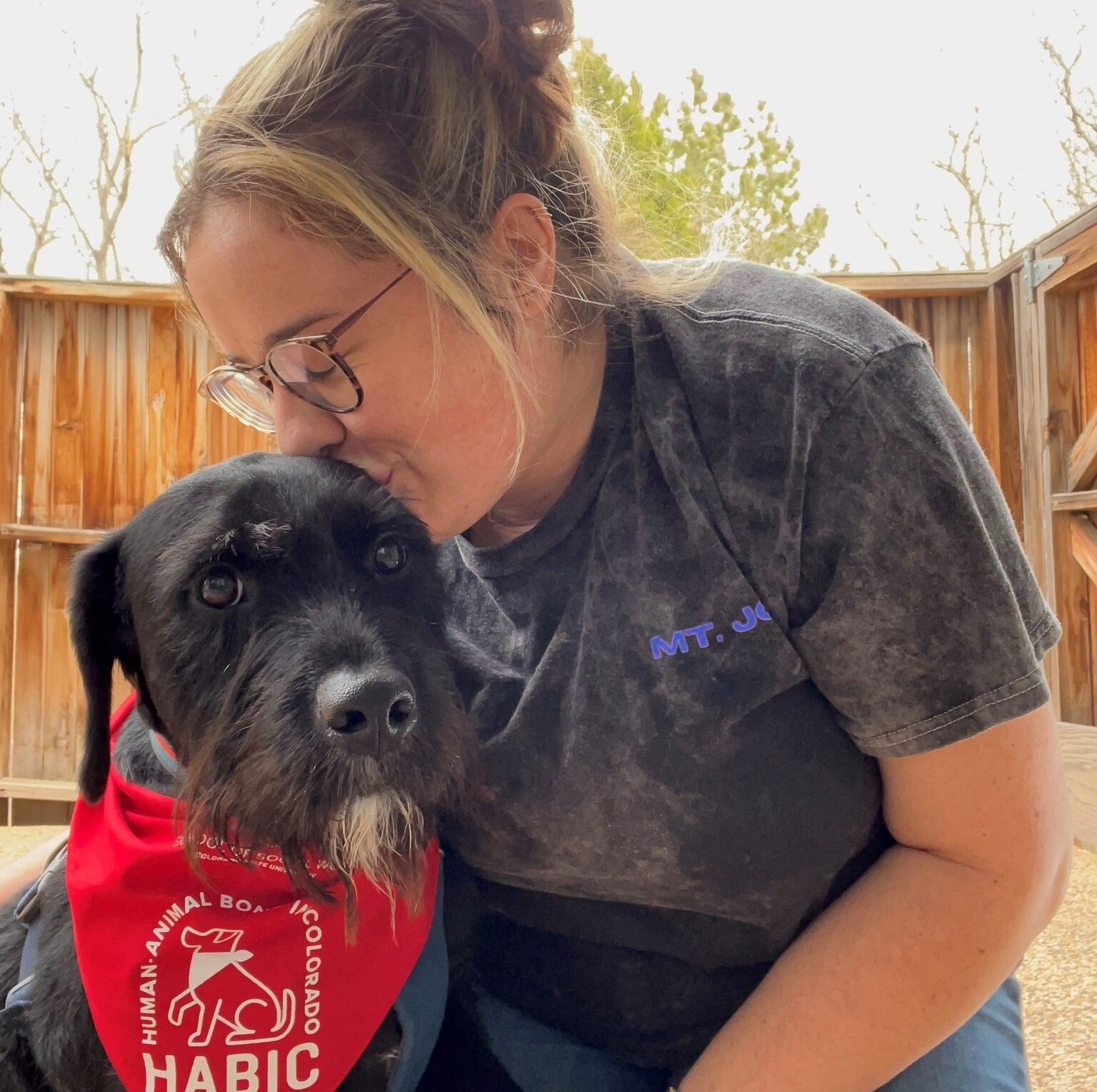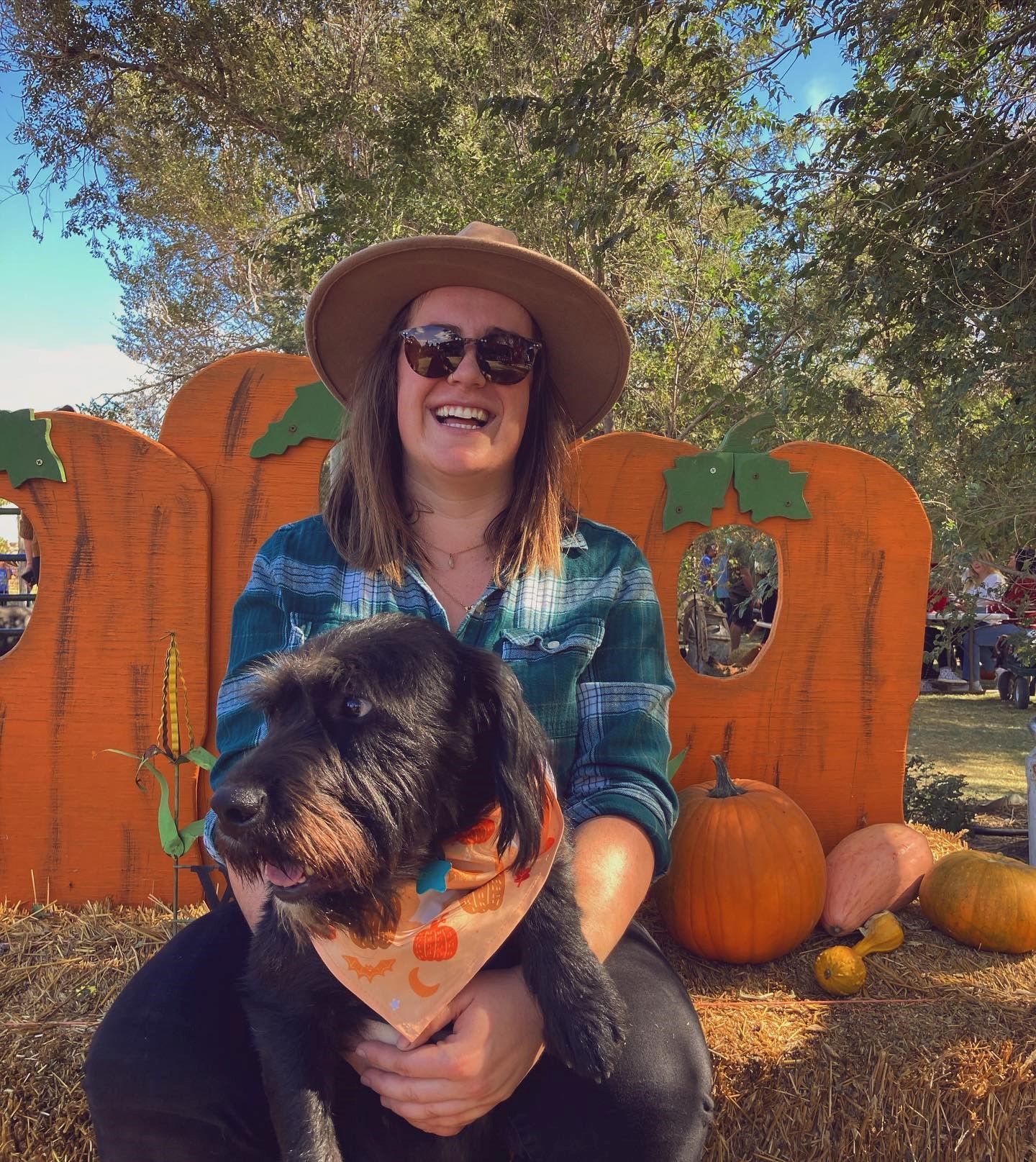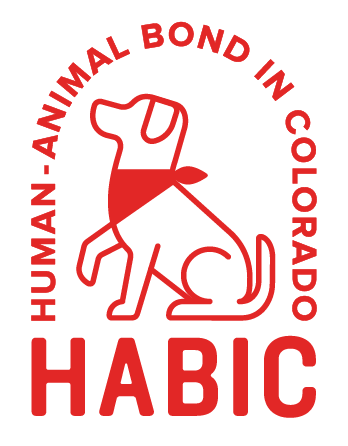When not comforting patients in a medical clinic waiting room, therapy dog Oso enjoys well-deserved time snoozing on the couch and sunbathing in HABIC volunteer Lucy Nuremberg’s backyard. The pair make a difference in their community by volunteering with Human-Animal Bond in Colorado – HABIC.
Story by Rebecca Rowlison
Oso the terrier mix had a rough start in life. He was rescued as a puppy along with more than 160 dogs from a hoarding situation in Oklahoma. Fortunately, after being transferred to Big Bones Rescue in Windsor, he met Lucy Nuremberg.
“He was a friendly and sleepy guy,” said Nuremberg. “It took a few days for the adoption process to be completed, and then a lot of time to help get Oso settled into his new life.”
“Over the past two years, he’s grown from a scared and anxious puppy into a dog that loves exploring and adventure,” said Nuremberg. “He used to lay down whenever we saw another dog on a walk. Now he loves being out on local hiking trails and making new friends. I’m very proud of him.”

Strengthening the bond with her dog
Thanks to Nuremberg’s patience and love, Oso’s friendly and relaxed personality emerged. It also became clear Oso could be a perfect therapy dog. “I had multiple people tell me I should get him evaluated for therapy work,” Nuremberg said. She had heard of HABIC while completing her undergraduate degree at Colorado State University in human development and family studies with a concentration in prevention and intervention sciences. Nuremberg currently works for The OtterCares Foundation in Fort Collins.

HABIC’s therapy dog training class allowed her to continue building her bond with Oso. “I knew I wanted a consistent volunteer commitment,” said Nuremberg, “so I thought HABIC would be a great opportunity, and I would get to do it with my dog!”
Nuremberg discovered it was important to learn what Oso’s limits are and what motivates him to keep going. “During our second HABIC class, Oso was losing motivation fast, and seemed to be getting pretty tired,” she said. “A class assistant pulled out some cheddar hot dogs and suddenly he had a second wind!”
‘So many people’s days are made’
After completing HABIC certification in May 2023, Nuremberg and Oso began volunteering as a dog team for The Women’s Clinic, a women’s healthcare practice in Fort Collins. One of their most memorable experiences so far was a human-animal interaction with a child in the waiting room with her mother.
“The little girl was reading a book out loud to her mom, and noticed Oso instantly,” Nuremberg said. “I told her Oso loves to have people read to him. He laid by her feet and she read to him until it was time for her mom’s appointment. Her mom was so grateful, and it changed [the girl’s] motivation to read when Oso got involved.”
“I think the most important thing about HABIC is the size of the impact we are making,” said Nremberg. So many people’s days are made through these dogs. It’s such a great way to serve the community. Oso is a special dog and brings me so much comfort and joy. I love that I get to share that with people who are needing a little more comfort and joy in their lives.”
Join HABIC as a therapy dog team
If you have a friendly dog and want to make a difference in your community together, HABIC offers a hybrid 12-week Therapy Dog Class for new volunteers. The class meets for one hour once a week. Classes are offered three times a year: Fall (classes begin in August), Spring (classes begin in January), and Summer (classes begin in May).

 About Human-Animal Bond in Colorado
About Human-Animal Bond in Colorado
Founded in 1993, Human-Animal Bond in Colorado (HABIC) is a center in the School of Social Work, part of CSU’s College of Health and Human Sciences. HABIC’s mission is to improve the quality of life for people of all ages through the therapeutic benefits of companion animals, with particular focus in the areas of community outreach, teaching, and research.